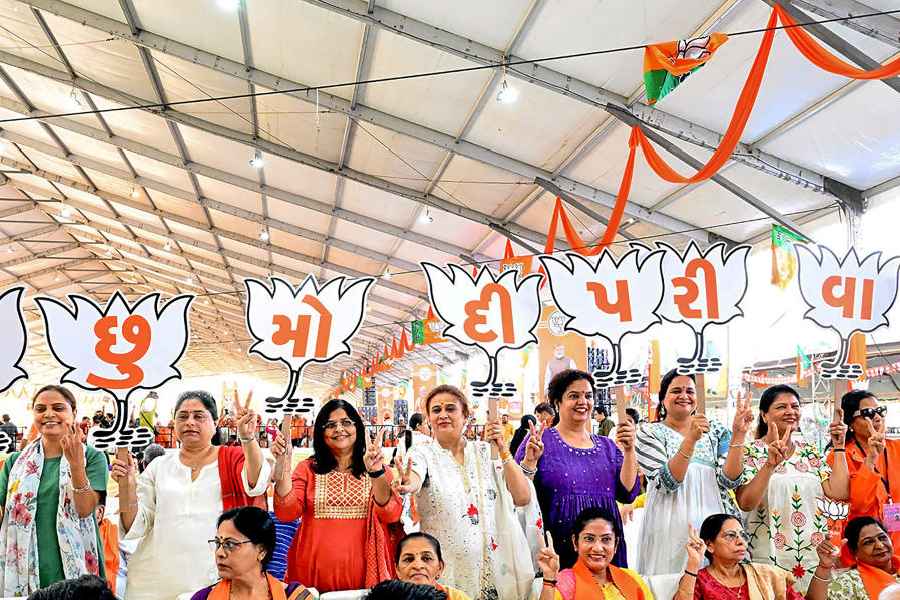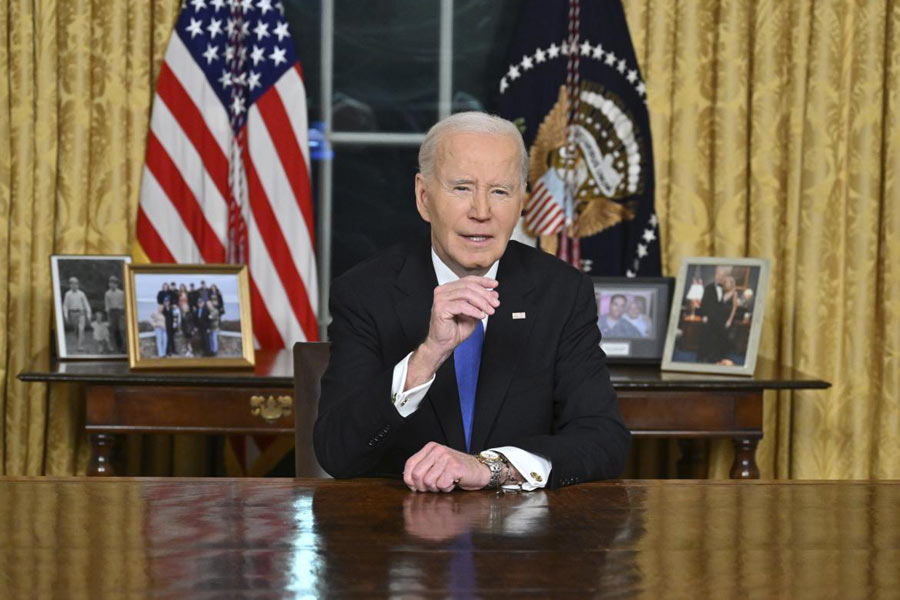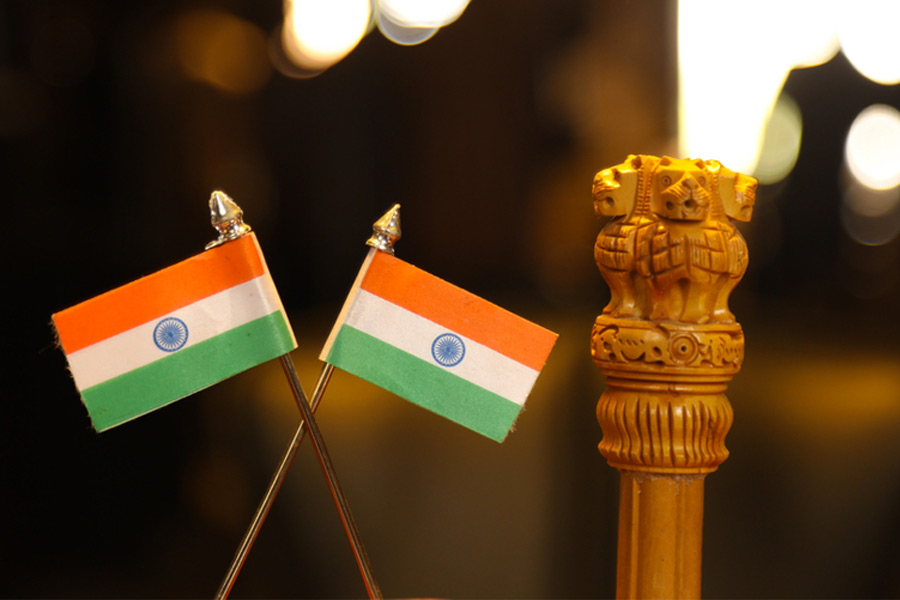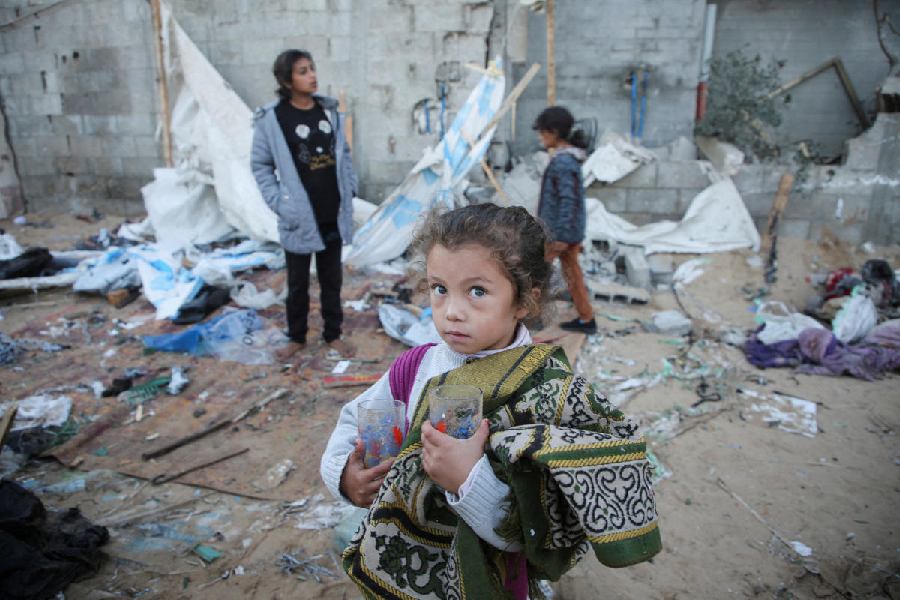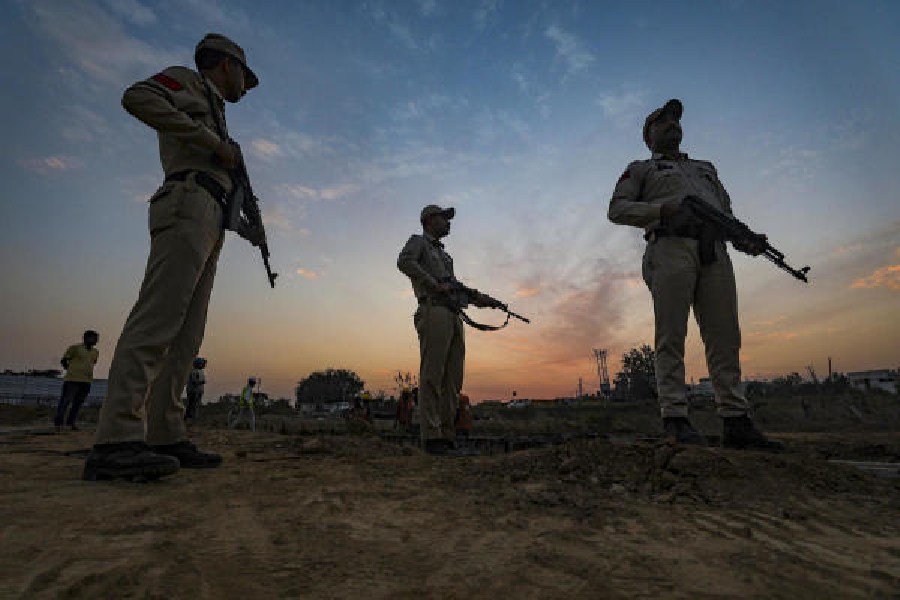The 2024 Lok Sabha elections wouldn’t have been a one-sided affair for the BJP if it was not for one man.
Narendra Damodardas Modi — Hindutva hriday samrat intertwined with a vikas purush. Without him, the BJP may not have been standing erect with a 26 out of 26 sweep in Gujarat, be it 2014, 2019, and hoping for a third term now.
The BJP’s enviable victory run in Gujarat through the three long decades, mostly because of Modi as chief minister and then Prime Minister, kindles memories of a similar vice-like control of the Communists in Bengal riding on the firm shoulders of the veteran Left leader, Jyoti Basu, like Modi now for the BJP.
Basu’s name had also some time figured for the prime ministerial post in the past. Basu was to the CPM almost like what Modi today is to the BJP.
Looking at the ground today, it is once again clear that without Modi, the battle in Gujarat would be no cakewalk. It is the first time that the BJP has been facing such intense anger within the ranks in an otherwise enviable cadre-based network. At a party workers’ meeting recently in Saurashtra’s Amreli constituency, Gujarat BJP president C.R. Paatil issued a stern warning to the ranks: “We will not tolerate any groupism and strict action will be taken irrespective of who it is.”
Instead of a tough taskmaster, this warning by Paatil sounded more like a desperate general trying to rein in the restless forces. He was the one to give out a clarion to call the party to snatch a minimum 5-lakh winning margin in each of the 26 Lok Sabha seats. In 2019, he had won from Navsari in South Gujarat with a record margin of nearly 7 lakh votes and may well cross the five-lakh target easily this time.
However, the BJP would know that the five-lakh margin in the rest of the 25 looks distant.
Consider this. It is unprecedented in BJP’s Gujarat that the party had to bow down to strong protests from within and change its candidates in Vadodara (sitting MP Ranjan Bhatt) and in Sabarkantha (Bhikaji Thakor). Scenes like posters opposing the nomination of Union health minister Mansukh Mandaviya in Porbandar were commonplace in several constituencies.
Last but not the least were strong protests from the Kshatriya community across the state, demanding withdrawal of the candidature of Union minister of state Parshottam Rupala from the Rajkot seat for his allegedly derogatory utterances against the community. Rupala publicly apologised twice and so did Paatil, twice, but the protests didn’t die down and reverberated in other regions.
The BJP leadership was, however, firm and retained Rupala as the candidate. With hardly any state-level Kshatriya leader taking the leadership for the community,
the protests petered out after the last day of withdrawal of candidates.
Sources say the BJP leadership, saw in this, a tacit advantage of stronger reverse consolidation of the Patel votes in their favour. Rupala is a Kadva Patel.
The Congress, however, has fielded a strong candidate, former leader of the Opposition and a formable Leuva Patel leader, Paresh Dhanani, in Rajkot against Rupala. Both are otherwise bitter political rivals from their home district Amreli.
At an election rally in a Dalit-dominated region, Rupala had asserted that Dalits remained loyal to India while the Kshatriya kings (whose fiefdom were annexed into India) warmed up to the British and even gave their daughters in marriage to the Whites.
So it is Modi, backed up by a formidable ground network of the BJP, as against the Congress where it is largely left to the candidate to singularly fight her or his own battle. This is the sum total of BJP’s invincibility in Gujarat.
The stamp of this was visible in the 2019 Lok Sabha elections when some 15 candidates won with a margin of more than 3 lakh votes while only four had a victory margin of less than 2 lakh. The lowest winning margin for a BJP candidate was over 1.5 lakh votes in 2019. Not to speak of C.R. Paatil’s 6.89 lakh votes.
The BJP broke its own record of 127 out of 182 Assembly seats in 2022 when it walked away with a mind-boggling 156 seats. What explains this performance is the party’s network not only up to the polling booth but also every page of the electoral rolls. The party has “panna pramukh (page president)” overseeing voters on a particular page. There are four to five such panna pramukhs per page. This has only strengthened with Paatil at the helm.
The page chiefs are supposed to ensure that they mobilise voters up to the polling booth and the latter ensures that they pick BJP candidates. On the other hand, the BJP as well as its government remain perennially in campaign mode. Announcement of even one major scheme by the government is celebrated like a festival and the party’s network ensures that the word reaches the last man.
Similarly, the party remains vigilant though apparently insurmountable — its worst performance of having been reduced to a double-figure 99 seats in the 2017 elections immediately galvanised the leadership into action.
After Anandiben Patel, who was replaced post the Hardik Patel agitation, Vijay Rupani was removed post Covid-19. On the other hand, several Congress MLAs and strong leaders joined the BJP from strategically vulnerable tribal regions in South Gujarat and then in North Gujarat and the Saurashtra region. The latest were former Gujarat Congress chief Arjun Modhwadia and former minister and tribal leader Narayan Rathwa.
- Gujarat votes today

